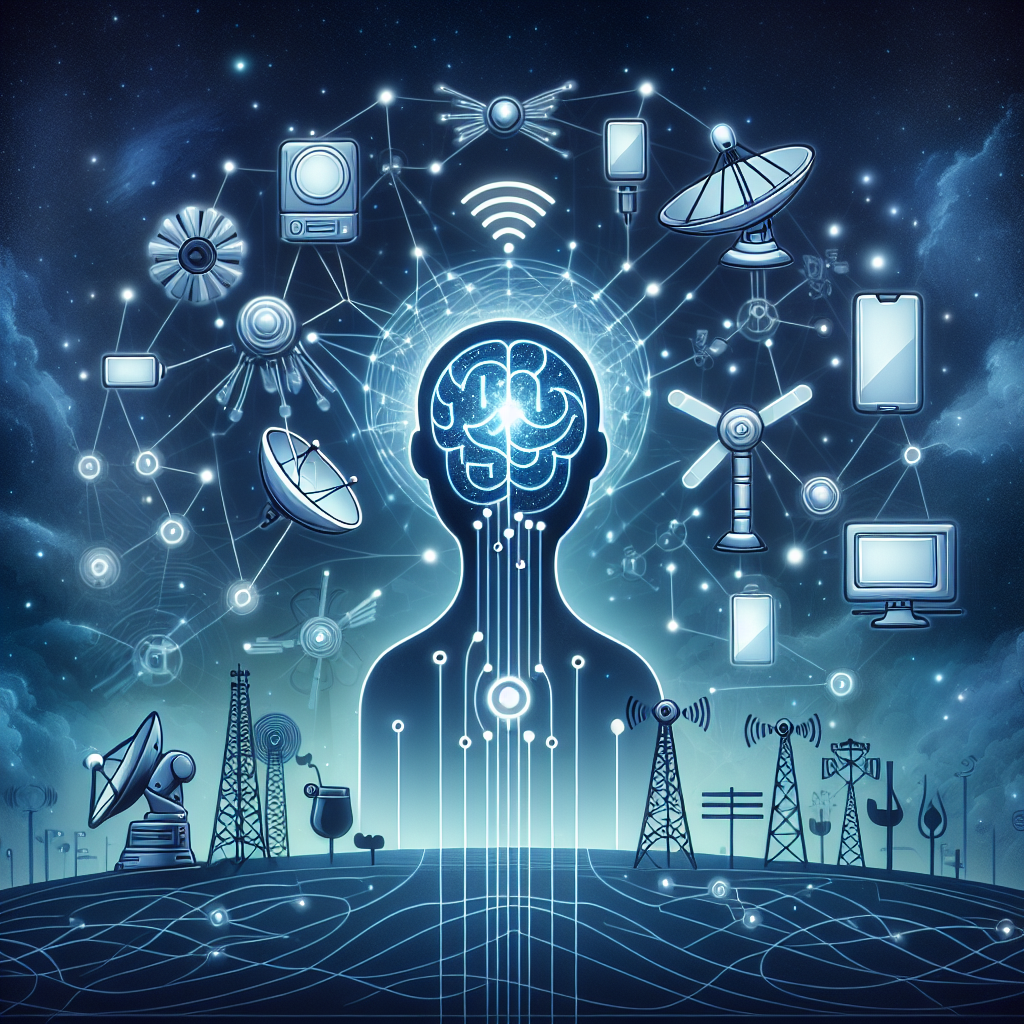AI-powered virtual assistants have revolutionized the way telecommunications companies interact with their customers. These virtual assistants, powered by artificial intelligence, are able to provide personalized, efficient, and convenient customer service, making them an invaluable tool for telecom companies looking to improve their customer experience.
One of the key benefits of using AI-powered virtual assistants in telecommunications is the ability to provide round-the-clock customer support. Virtual assistants are available 24/7, allowing customers to get assistance at any time of the day or night. This is especially important in the telecommunications industry, where issues such as network outages or billing inquiries can arise at any time. By having a virtual assistant available at all times, telecom companies can ensure that their customers always have access to the support they need.
Another benefit of AI-powered virtual assistants is their ability to provide personalized service to customers. Virtual assistants can use data analytics and machine learning algorithms to understand each customer’s preferences, behavior, and history with the company. This allows virtual assistants to provide tailored recommendations, solutions, and offers to each individual customer, creating a more personalized and engaging experience.
AI-powered virtual assistants are also able to handle a wide range of customer inquiries and tasks, from simple questions about billing or account information to more complex technical issues. This helps to reduce the workload on human customer service agents, allowing them to focus on more complex and high-value interactions with customers. Virtual assistants can also help to streamline processes such as account activation, service upgrades, and troubleshooting, making the customer experience more efficient and seamless.
In addition to providing customer service, AI-powered virtual assistants can also be used to gather valuable insights and feedback from customers. Virtual assistants can collect data on customer interactions, preferences, and behaviors, which can be used to improve products and services, identify trends and patterns, and enhance the overall customer experience. By analyzing this data, telecom companies can gain a deeper understanding of their customers and make more informed decisions about how to better serve them.
Overall, AI-powered virtual assistants are a powerful tool for telecommunications companies looking to improve their customer service, increase efficiency, and gain valuable insights into their customers. By leveraging the capabilities of artificial intelligence, virtual assistants can provide a personalized, convenient, and efficient customer experience that sets telecom companies apart from their competitors.
FAQs:
Q: How do AI-powered virtual assistants work in telecommunications?
A: AI-powered virtual assistants in telecommunications use artificial intelligence technologies such as natural language processing, machine learning, and data analytics to interact with customers, provide personalized service, and gather insights. Virtual assistants can understand and respond to customer inquiries, recommend solutions, and analyze data to improve the customer experience.
Q: What are the benefits of using AI-powered virtual assistants in telecommunications?
A: Some of the key benefits of using AI-powered virtual assistants in telecommunications include 24/7 customer support, personalized service, efficiency, and valuable insights. Virtual assistants can provide round-the-clock assistance, tailor recommendations to individual customers, streamline processes, and collect data to improve products and services.
Q: How can AI-powered virtual assistants improve the customer experience in telecommunications?
A: AI-powered virtual assistants can improve the customer experience in telecommunications by providing personalized service, efficient support, and valuable insights. Virtual assistants can offer tailored recommendations, handle a wide range of customer inquiries, and gather data to enhance products and services, creating a more engaging and seamless experience for customers.
Q: Are AI-powered virtual assistants replacing human customer service agents in telecommunications?
A: While AI-powered virtual assistants can handle a wide range of customer inquiries and tasks, they are not meant to replace human customer service agents entirely. Virtual assistants are designed to complement human agents, freeing them up to focus on more complex and high-value interactions with customers, while virtual assistants handle more routine and repetitive tasks.

